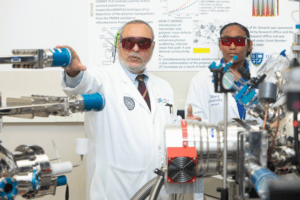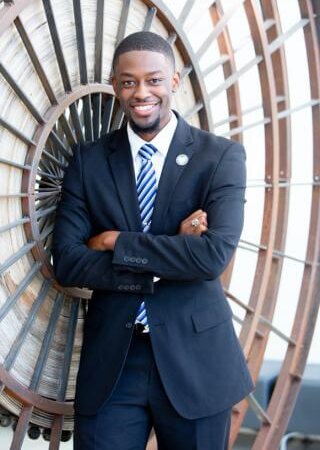

Physics at a Glance
DEGREES OFFERED
Physics B.S.
Physics Minor
RELATED PROGRAMS
Chemistry Program
Mathematics & Actuarial Science
Health Science Program
Biology Program
COLLEGE
DEPARTMENT
Dillard University Physics Program
Start your journey with a Physics BS degree and help shape tomorrow’s world.
 Join our Bachelor of Science in Physics program to start your journey of academic excellence and career readiness. Whether you aspire to pursue a career in engineering, medicine, research, or academia, the Dillard University Physics Department is dedicated to providing you with the knowledge, skills, and experiences necessary to thrive in your chosen path.
Join our Bachelor of Science in Physics program to start your journey of academic excellence and career readiness. Whether you aspire to pursue a career in engineering, medicine, research, or academia, the Dillard University Physics Department is dedicated to providing you with the knowledge, skills, and experiences necessary to thrive in your chosen path.
With concentrations in Medical Physics and Pre-Engineering, our curriculum equips you with a solid foundation for graduate studies, research, or employment. Explore interdisciplinary research areas like Chemical Physics, Biomedical Engineering, and Material Science. Plus, pursue dual degrees with esteemed institutions like Columbia University and Georgia Tech, opening doors to diverse career pathways in engineering and beyond.
Elevate your future with a Physics degree at Dillard University, Louisiana’s oldest HBCU, and start your a journey of discovery and innovation.
Program Contact
School of STEM
2601 Gentilly Boulevard
New Orleans, Louisiana 70122
Ph. (504) 283 – 8822
physics@dillard.edu
Office Hours:
M-F 8 a.m. – 5 p.m.
Physics Degrees and Programs
Bachelor of Science in Physics
Our comprehensive Physics program, spanning 128 credit hours structured as follows:
General Education Core: 41 credit hours
Major Requirements: 61 credit hours
Additional Coursework: 26 credit hours
Engage in immersive learning experiences and community service initiatives, accumulating 90 hours by the end of your junior year, guided by our Center for Career and Professional Development.
To refine communication skills, excel in ENG 111 and ENG 112 with a minimum 'C' grade to qualify for ENG 199 - Writing Proficiency Examination. Further support available through ENG 200 - Review of Writing Strategies (3 credit hours).
Bachelor of Science in Physics - Pre-Engineering (3-2) Concentration
The Physics program offers a unique opportunity for students to pursue a dual degree (BS/BE) in collaboration with esteemed institutions such as Columbia University, Georgia Institute of Technology, Tulane University, and University of New Orleans. With a comprehensive curriculum spanning 137 credit hours, including 52 credit hours of major requirements and 20 credit hours of additional coursework, students acquire the necessary skills and knowledge for success in their chosen fields.
To participate in the dual-degree program, students must meet certain requirements, including a minimum cumulative GPA of 2.8, completion of the Dillard University External Program Application by January 1 of the third year, and acceptance into both the Physics program and the host institution. Additionally, students must successfully complete all coursework at the host institution during the first year, including a minimum of 28 credit hours, with a grade of "C" or better and a GPA of 2.5.
Throughout their academic journey, students engage in service learning initiatives and community service projects, accumulating a total of 30 service learning hours and 90 community service hours by the end of their junior year. This holistic approach to education ensures that students not only excel academically but also develop essential skills and experiences for future success.
Bachelor of Science in Biology – Pre-Professional Concentration
In our Physics - Medical Physics Concentration program, students are prepared for diverse career paths with a curriculum focused on interdisciplinary research areas such as Chemical Physics, Biomedical Engineering, Material Science, and more. With a strong foundation in physics principles, students acquire essential skills and experience through hands-on training, enabling them to demonstrate preparedness for graduate study or entry-level employment.
Aligned with our commitment to holistic education, students engage in interactive learning experiences, fostering independent study and research. During coursework in our Medical Physics program, students gain valuable insights and hands-on experience with major research equipment, setting them on a path for success in their chosen field.
Earn your physics minor by completing 20 credit hours of diverse coursework, enhancing your understanding of biological principles and applications.
Student Research
We offer robust research opportunities akin to Research I universities and graduate schools. Students will access cutting-edge infrastructure and laser labs for advanced material fabrication and engage in real-world projects with agencies like the Department of Defense and Homeland Security.
Additionally, students will collaborate closely with faculty to publish in esteemed journals. Gain valuable experience and preparation for graduate studies or full-time employment in the workforce.

Student Learning Outcomes
- Demonstrate preparednes
 s for graduate study and/or entry-level employment.
s for graduate study and/or entry-level employment. - Effectively matriculate in 3-2 Pre-Engineering and Medical Physics program.
- Demonstrate preparedness for independent study and research through interaction with scholars and experts in their disciplines.
- Acquire experience through hands-on-training on major research equipment available in program.
No, “scientific exploration” may not be the most suitable term for a physics degree in this context. Perhaps “academic pursuit” or “pursuit of scientific knowledge” would be more appropriate. Here’s the revised sentence:
Apply today to begin your academic pursuit of excellence in physics at Dillard University, Louisiana’s oldest HBCU.”
Earn your physics degree at Dillard University, the oldest accredited baccalaureate program in the state of Louisiana.
WELCOME TO OUR COMMUNIVERSITY

READY FOR THE NEXT STEP?
Join the legacy, culture, and community at Dillard University, Louisiana’s oldest HBCU. Your journey starts here.

